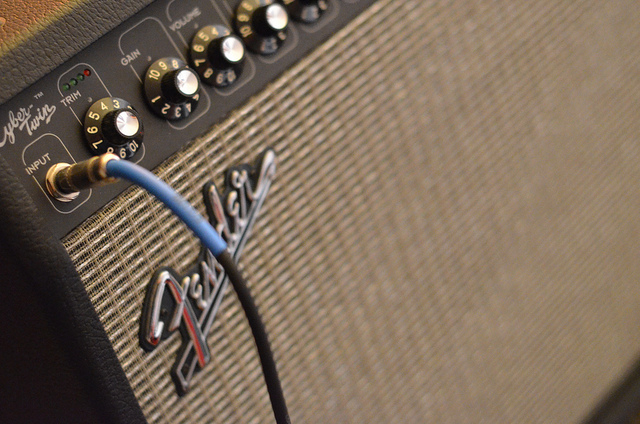Musicians' Union provide Hearing Health Scheme and offer advice on protecting your hearing
Blog by Musicians' Union under Live, Recording & Production

High noise levels and loud effects are often considered essential to a performance. But loud sounds, whatever their source, can damage your hearing.
Hearing damage can be permanent, irreversible and can cause deafness – which means if you want to build a career in music, you need to protect yourself.
If you’re a Musicians’ Union (MU) member, that’s where we come in.
The basics: how loud is too loud?
Noise at work issues for most industries are covered by the Control of Noise at Work Regulations 2005 and special guidance for music and entertainment called Sound Advice.
The regulations list what employers must do to ensure you are safe, such as assess the risks to employees from noise at work, take action to reduce the noise exposure that produces those risks, consult employees and their representatives (in music, the MU) on measures taken to reduce noise exposure, and make sure the legal limits on noise exposure are not exceeded.
It says there are two ‘action levels’ — decibel levels at which an employer should do something. These are at 80dB(A) and 85dB(A):
• Suitable hearing protection must be made available for workers when there’s a daily or weekly exposure above 80dB(A), or a peak sound pressure of 135dB(C).
• Suitable hearing protection must be used when the daily or weekly exposure exceeds 85dB(A), or a peak sound pressure of 137dB(C).
A daily or weekly level of 87dB(A) or a peak sound pressure of 140dB(C) must not be exceeded.
To give you an idea of what that means, a rock band typically reaches anything up to 125dB(A). So, chances are, you need to make sure your hearing is protected.
But I don’t have an ‘employer’
When we talk about noise regulations, the term ‘Employer’ can include promoters, venues, event organisers, record labels, theatrical producers and contractors amongst others.
So, even if you are not employed in a strict legal sense, your engager will most likely have a legal responsibility to protect you from injury while you’re working for them.
Employers in the news
Noise hit the headlines earlier this year when a musician took a personal injury claim against the Royal Opera House (ROH) in the High Court, and won.
A key focus of the case was acoustic shock – a short term high intensity exposure to damaging noise levels. It also covered issues that highlight employers’ responsibility to protect employees.
As a result, we are advising employers to review their health and safety procedures.
The MU can advise employers / engagers on noise issues, including what their obligations are to you and what you are expected to do too, as well as best practice in the industry.
Get in touch for advice from your local MU team via theMU.org.
Protecting yourself
We would advise all musicians to get hearing protection.
For employers, this should be a last resort – employers should explore all other methods of reducing noise exposure before looking at hearing protection, because working environments should be safe for everyone. Where a musician is employed, we would encourage employers to cover the cost of hearing protection when musicians need it.
But, especially for freelancers and gigging musicians, it remains one way you can protect yourself that’s entirely in your control.
This is where the MU’s Hearing Health Scheme, in partnership with Help Musicians UK and Musicians Hearing Services, comes in.
It costs £30, and you will receive an audiological assessment, ear check-up and hearing protection worth about £300 in your first year of membership. That includes one set of free custom made, specialist musicians' ear plugs, worth about £170.
You’ll also get expert advice on next steps to manage any problems, including contact with your GP.
Clinics take place in London and Manchester throughout the year, and there is a rolling programme of clinics across the UK.
Keep an eye on theMU.org for details or contact your MU Regional Office for more information.
Tags
Musicians' Union guide to protecting your hearing






